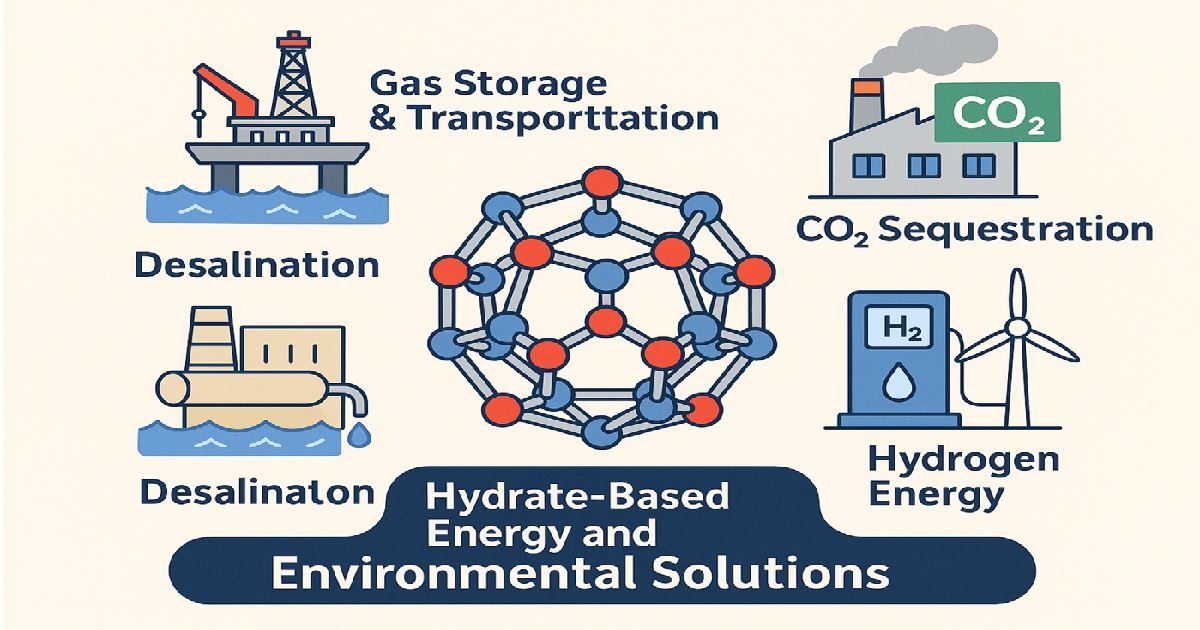- 2.8Impact Factor
- 5.5CiteScore
- 16 daysTime to First Decision
Innovative Gas Hydrate Technologies for a Sustainable Energy Future
This special issue belongs to the section “Energy Systems“.
Special Issue Information
Dear Colleagues,
Gas hydrates are crystalline compounds composed of water and gas molecules. They are increasingly recognized as key elements in the pursuit of sustainable energy and environmental remediation. Their potential spans natural gas storage and transportation, carbon dioxide sequestration, desalination, and cold energy utilization. With recent advances in thermodynamic modeling, experimental techniques, and the integration of AI and IoT into hydrate research, new frontiers are emerging for practical and scalable hydrate applications. These developments are critical to supporting the global transition to cleaner energy systems and more efficient resource utilization.
This Special Issue, titled “Innovative Gas Hydrate Technologies for a Sustainable Energy Future”, seeks high-quality contributions from researchers working on fundamental, applied, and interdisciplinary aspects of gas hydrate science and technology. Topics of interest include, but are not limited to, the following:
- Gas hydrate formation and dissociation kinetics;
- Hydrate-based gas storage and transportation (e.g., methane and hydrogen);
- CO2 capture and sequestration via hydrate formation;
- AI and machine learning in gas hydrate research;
- Experimental and molecular simulation studies on hydrate phase behavior;
- Hydrate applications in seawater desalination and cold energy;
- Hydrate formation in porous and confined media;
- Thermodynamic modeling and predictive frameworks for hydrate systems;
- Hybrid hydrate systems integrating IoT for process control;
- Sustainable hydrate-based separation technologies.
We look forward to your contributions.
Dr. Hamed Hashemi
Dr. Saeedeh Babaee
Guest Editors
Manuscript Submission Information
Manuscripts should be submitted online at www.mdpi.com by registering and logging in to this website. Once you are registered, click here to go to the submission form. Manuscripts can be submitted until the deadline. All submissions that pass pre-check are peer-reviewed. Accepted papers will be published continuously in the journal (as soon as accepted) and will be listed together on the special issue website. Research articles, review articles as well as short communications are invited. For planned papers, a title and short abstract (about 250 words) can be sent to the Editorial Office for assessment.
Submitted manuscripts should not have been published previously, nor be under consideration for publication elsewhere (except conference proceedings papers). All manuscripts are thoroughly refereed through a single-blind peer-review process. A guide for authors and other relevant information for submission of manuscripts is available on the Instructions for Authors page. Processes is an international peer-reviewed open access monthly journal published by MDPI.
Please visit the Instructions for Authors page before submitting a manuscript. The Article Processing Charge (APC) for publication in this open access journal is 2400 CHF (Swiss Francs). Submitted papers should be well formatted and use good English. Authors may use MDPI's English editing service prior to publication or during author revisions.
Keywords
- gas hydrates
- sustainable energy
- CO2 sequestration
- hydrogen storage
- AI in chemical engineering
- thermodynamic modeling
- desalination
- molecular simulations
- porous media
- environmental applications

Benefits of Publishing in a Special Issue
- Ease of navigation: Grouping papers by topic helps scholars navigate broad scope journals more efficiently.
- Greater discoverability: Special Issues support the reach and impact of scientific research. Articles in Special Issues are more discoverable and cited more frequently.
- Expansion of research network: Special Issues facilitate connections among authors, fostering scientific collaborations.
- External promotion: Articles in Special Issues are often promoted through the journal's social media, increasing their visibility.
- e-Book format: Special Issues with more than 10 articles can be published as dedicated e-books, ensuring wide and rapid dissemination.

